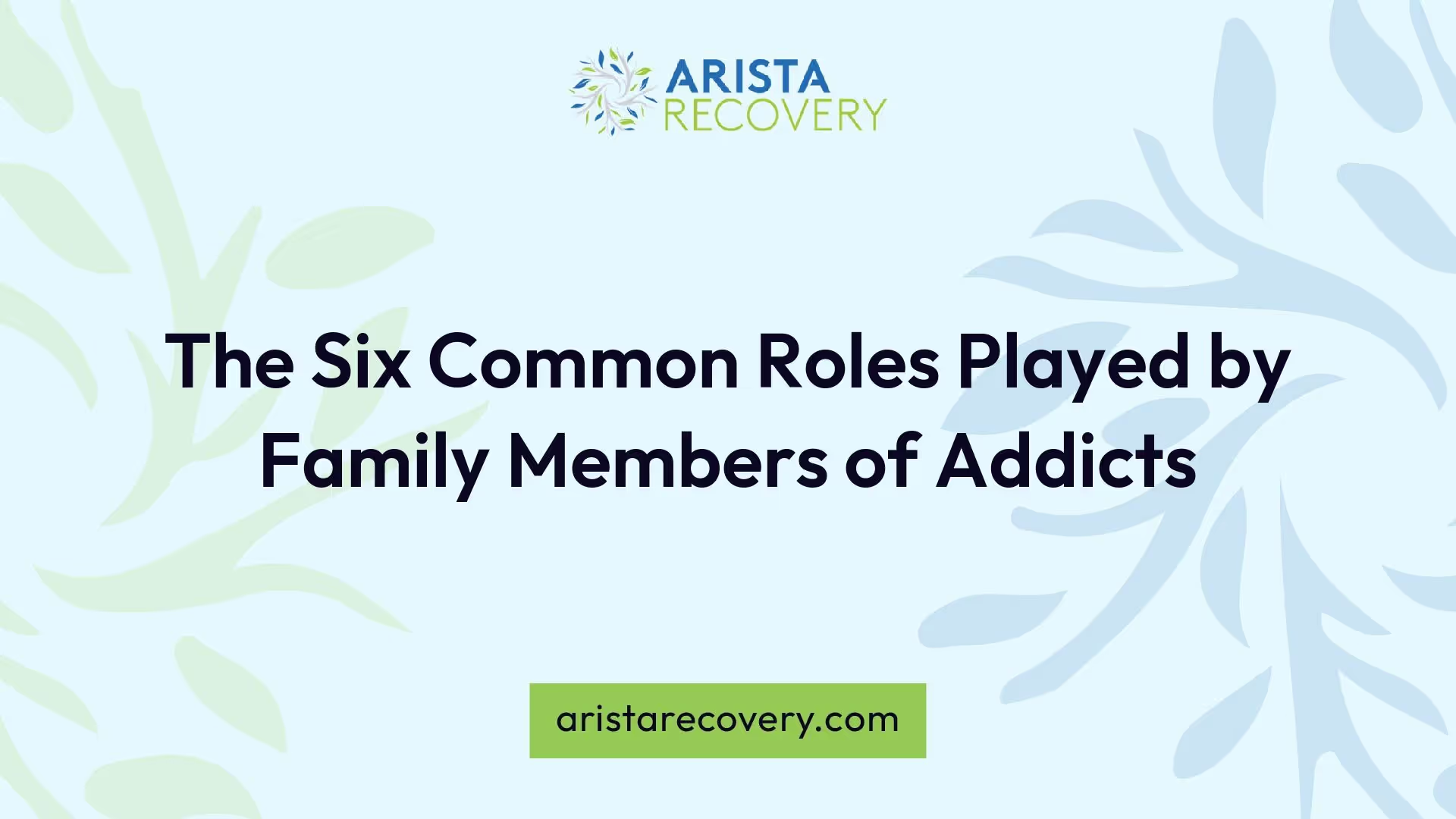
The Six Common Roles Played by Family Members of Addicts
Family Roles in Addiction
Understanding the dynamics within families affected by addiction is crucial for grasping how these relationships influence both the addict and the recovery process. Each family member often takes on a specific role that affects their responses and interactions with the addicted individual.

Understanding Addicted Family Members
Family members of addicts frequently exhibit behaviors that are a response to their loved one's addiction. The person struggling with addiction may display dependent behaviors, engage in negative actions like lying and manipulating, and show an inability to manage their moods, which can result in anger and avoidance [1]. Each member's reaction to these behaviors helps shape the overall family dynamic.
Families often gravitate toward identifiable roles defined by Sharon Wegscheider-Cruse, which include the Addict, Caretaker, Hero, Scapegoat, Mascot, and Lost Child. These roles create a pattern of interaction where each member plays a part in either supporting or hindering the addict’s journey towards recovery.
The Enabling Dynamic
Enabling behaviors are common in families dealing with addiction. Family members may believe they are helping their loved ones by shielding them from the consequences of their actions. However, this often allows the individual in addiction to persist with their negative behaviors without facing responsibility. This cycle can perpetuate the addiction and hinder the recovery process [2].
Common characteristics of enabling behaviors include:
Enablers, often spouses or parents, can struggle with establishing boundaries. They may deny the existence of the issues stemming from addiction, further complicating the situation and hindering recovery efforts [1].
By understanding these dynamics and the roles family members play, it becomes evident how family interactions can significantly influence an addict's recovery journey and the overall health of the family unit. For additional insights into supporting an addicted family member, explore our articles on ways to be supportive of recovery and five ways support loved one through treatment.
Common Family Roles
Within families dealing with addiction, various roles can emerge that significantly impact all members involved. Understanding these roles is essential to grasp how addiction affects family dynamics. The six common roles family members of addicts may adopt include the Scapegoat, the Hero, and the Mascot.
The Scapegoat
The Scapegoat in a family often becomes the target for blame regarding family issues. This individual may take on the responsibility for problems, shielding other family members from feelings of guilt or shame. The focus on this family member diverts attention from the real issues related to the addiction, creating a dynamic where the Scapegoat feels increasingly isolated.
As the Scapegoat struggles to manage their anger and disappointment, they may develop avoidance behaviors, leading to greater isolation from the family. This role perpetuates a cycle of blame and dysfunction, obstructing the recovery process for the addict and the family as a whole.
The Hero in Perspective
The Hero, or the perfectionist in the family, often emerges as a beacon of strength. While this role may seem positive, it can hinder recovery efforts. The Hero usually operates from a place of fear, seeking to maintain control in a chaotic environment caused by addiction. This individual strives for high achievements and may blame other family members for perceived failures in addressing the addiction [4].
Despite their good intentions, the Hero's focus on their own achievements can distract from the needs of the addict. They may resent the primary enabler or siblings, complicating the family's ability to address the addiction effectively. This role can lead to conflicts that detract from supportive recovery efforts.
The Mascot's Role
The Mascot serves as a means of lightening the mood within a family grappling with addiction. They may employ humor and playfulness to distract from the family's problems, helping to alleviate tension. However, this role can also mask deeper issues and prevent serious discussions about the addiction.
While the Mascot’s intentions are to provide comfort and relief, their behavior can unintentionally trivialize the addiction and minimize its impact. Instead of fostering healthy conversations and seeking solutions, the Mascot may keep the family from confronting the reality of the situation and the necessity of change.
Understanding these roles can illuminate how each family member's behavior impacts the individual struggling with addiction. Recognizing and addressing these dynamics may lead to more effective support during recovery. For further insights on family support, consider reading about ways to be supportive of recovery.
Impact on Recovery
Supporting family members dealing with addiction is vital in navigating the complexities of recovery. Family members can play influential roles in either hindering or enhancing the recovery process. Recognizing how they can provide support is crucial.
Supporting the Addict's Journey
Family members must adopt a supportive stance to foster the recovering addict's journey. Their willingness to make sacrifices and humbly support their loved ones is essential. Active involvement can significantly influence the success of recovery, as family members are often the primary source of motivation and strength for those in treatment.
Numerous effective strategies can help family members better support their loved ones during recovery:
Changing enabling behaviors not only benefits the individual struggling with addiction but also enhances the well-being of the entire family [2].
Family Influence in Recovery
The influence of family members in the recovery process is profound. They can either assist or hinder progress based on their actions and attitudes. According to biblical principles, such as those outlined in First Corinthians and Romans, families are encouraged to avoid being stumbling blocks for their loved ones in recovery. This means making conscious choices that don’t trigger relapse or undesired behaviors.
Active support entails avoiding actions that could lead to the recovering addict's temptation or distress. By fostering an environment of understanding and compassion, family members help the addict focus on their journey to sobriety. Resources such as ways to be supportive of recovery provide additional guidance for family members seeking to reinforce positive behaviors and contribute to successful recovery outcomes.
References
[1]: https://wellnessretreatrecovery.com/types-of-family-roles-in-addiction/
[2]: https://family-intervention.com/blog/the-truth-about-enabling/
[3]: https://www.renaissancerecovery.com/family-roles-in-addiction/
[4]: https://family-intervention.com/blog/the-hero-understanding-co-dependency-and-family-roles-in-addiction/
[5]: https://reachrecovery.org/the-roles-of-the-enabler-codependent-in-families-with-substance-abuse/
When mental health challenges and addiction intersect, it can feel isolating. At Arista, we offer compassionate, evidence-based, and trauma-informed care to help you heal, grow, and move forward.
You’re not alone in this.
When mental health challenges and addiction intersect, it can feel isolating. At Arista, we offer compassionate, evidence-based, and trauma-informed care to help you heal, grow, and move forward.
Support that moves with you.
You’ve taken a brave first step. At Arista Recovery, we’re here to help you continue with best-in-class care designed for long-term healing and support.
.webp)






